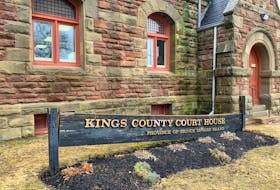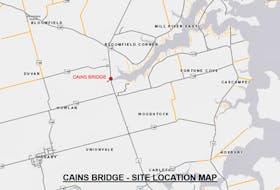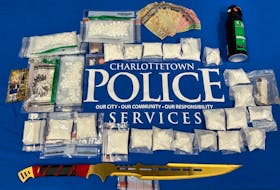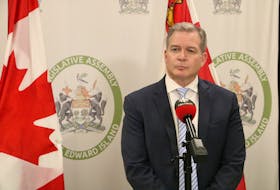CHARLOTTETOWN, P.E.I. — Horace Carver’s influential 2013 report on the state of the Lands Protection Act contained 29 recommendation.
A 30th recommendation was initially included but scribbled out before the report went to print.
"I think what I'm going to do is, in my first draft, I'm going to put a cap of 200 acres for any resident who is not a bona fide farmer, to own land," Carver told current MLAs on Thursday, referring to his thought process at the time.
In the end, Carver decided to not include the recommendation limiting land holdings for non-farmers. He felt this would have taken attention away from the other recommendations in the report, which focused on the existing land ownership restrictions in the act.
Carver, who chaired a year-long commission focused on the Lands Protection Act, spoke before a standing committee meeting on Thursday.
Carver’s report, entitled The Gift of Jurisdiction, has remained influential almost seven years later, particularly among farming advocates.
The report recommended maintaining the land size limits of the LPA at 1,000 acres for individuals and 3,000 acres for corporations, but also urged exemptions of 400 acres for individuals and 1,200 acres for corporations for non-arable land. These recommendations have since been implemented by government.
The report also urged government conduct a study of the relationship between land size and profitability of farms, release public annual reports of non-resident ownership on P.E.I., and establish a land trust. These and other recommendations have yet to be implemented.
Carver’s comments to the committee were peppered with asides and political history.
He recounted a disagreement between the province and the then-Liberal government of Pierre Trudeau leading up to the establishment of the Charter of Rights and Freedoms in the early 1980s.
The federal government felt property rights should be enshrined in the Charter. The province disagreed, arguing this would limit P.E.I.’s ability to set policy related to resident ownership of farmland.
In the end, property rights were not enshrined in the Charter.
"Land should not be viewed as a commodity traded on the stock market like silver and gold. Land should be viewed as a renewable resource to be protected," Carver said.
Carver said the agriculture minister should have better access to records of land ownership on P.E.I.
“If the minister feels that he doesn't have the legal authority to ask who owns the land then give him the authority to get the answers that he needs," Carver said.
Carver criticized 2018 changes to the Business Corporation Act, which ended the requirement that corporations publicly list the names of their shareholders. Some of these changes have since been reversed by the current Progressive Conservative government,
Some have suggested the lack of shareholder transparency allowed the controversial Brendel Farms sale to occur last summer. Over 2,000 acres of land was transferred from a family-owned farm to an Irving-affiliated company. A similar land deal was rejected by the previous Liberal government in March 2019.
The new PC government has pledged to close loopholes in the LPA.
Doug Campbell, district director of the National Farmers Union, said he believes consultations with Island farmers will be important. But he believes the suggested changes he has so far heard are “superficial.”
"We need to go one step further. It's no good to just go back to what we had before,” Campbell said.
“We need more transparency in the sense that it doesn't take days to figure out who the shareholders are in a corporation."









